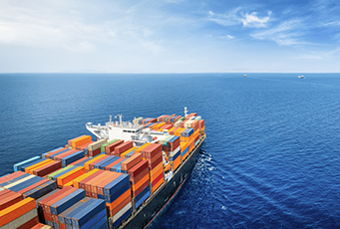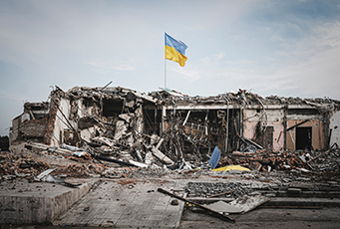We live in a global community. Activities anywhere in the world can have an impact, positive or negative, on our investment markets. So, what about Russia and the Ukraine? Should investors be concerned?
Over the past couple of weeks, headlines surrounding the events in the Ukraine have garnered worldwide attention. So much so, that news of an escalating crisis with Russia sent domestic and global markets down and then the subsequent news of a receding crisis rallied markets.
In order to understand the impact this conflict may have on your investments, it is necessary to understand the motives of both Russia and Ukraine.
What Started It?
Ukraine is on the brink of a civil war that divides the established government from its younger citizens. Russia cares for many reasons. Culturally, Ukraine has a long history with Russia. Many Russians live in the peninsular region of Crimea, where pro-Russians out number pro-Ukrainians. Russia has indicated that their interest in protecting Crimea is only due to the Russians that live there and the pro-Russians that support Moscow.
What Ukraine Means to Russia?
Despite Russia’s insistence that their involvement is a humanitarian effort, we cannot forget that Ukraine is strategically positioned next to Russia with significant access to ports in the Black Sea and pipeline interests that export a significant amount of Russia’s gas. Militarily, Russia also operates a naval base in Crimea. With a change in control in Ukraine, Russia’s significant strategic interests become less dependable. Additionally, significant events took place in Crimea that is part of Russian history, so the region also has historical importance.
Global Economic Impact
There is interdependence between the economies of Europe, United States, and Russia. Action by any will likely impact them all.
Europe relies on Ukraine to push through a significant amount of gas to the European continent from Russia. Less stable gas supplies could result in manufacturing disruptions and price spikes that may send Europe back into a recession, which could be very costly. And, if Europe falls back into a recession, it will undoubtedly slow worldwide economic growth and impact the U.S. economy.
On the other hand, Russia’s own economic situation would be weakened by a reduction in exports to Europe, including gas. According to the Peterson Institute for International Economics in Washington DC, almost half of Russia’s exports go to Europe with seventy-five percent of its total exports being oil and gas. Any reduction in exports would hurt Russia.
While Russia is not a major trading partner with the United States, many U.S. companies such as Ford Motor and John Deere have manufacturing or assembly plants located there. Russia has also become a high-growth market for both Pepsi and McDonald’s. Sanctions and a significant change in relations could impact many U.S. companies.
Did Market Reaction Surprise Putin?
When Russia sent troops into Ukraine, their stock market plunged and their currency, the Ruble, hit a low against the dollar, matching levels not seen since the financial crisis in 2009. Undoubtedly, Putin saw the writing on the wall. A forceful takeover would protect some national interests; however, it would not be in Russia’s economic interest and could ultimately reduce his status and power in Russia. While he continues to play hardball on the issue of Crimea, with the stakes being high, and the World watching his every move, it appears Putin has allowed himself to open up to a more diplomatic process.
There is also another issue that weighs on Putin’s actions. Putin understands that because Russia actually owns a majority stake in some of its country’s largest publicly traded companies, Russia is more exposed to market fluctuations than other countries.
Russia also ranks third in the number of billionaires. These individuals own significant assets in Russia, as well as the United States and Europe. Any freezing of assets or the recent visa ban imposed by President Obama will likely have a negative effect on these billionaires, who are also reported to be friends of Putin.
Summary
There is a transition occurring in Ukraine and the outcome could impact economies and stock markets around the world. As noted above, actions by Russia against Ukraine could hurt their own economy. Sanctions by Europe and U.S. can result in negative outcomes for their own domestic corporations. In today’s global economy, these situations become very complicated.
As investors, we must remain alert to these consequences and, in this case, hope for a diplomatic resolution that may minimize the impact.
Prior to implementing any investment strategy referenced in this article, either directly or indirectly, please discuss with your investment advisor to determine its applicability. Any corresponding discussion with a Bedel Financial Consulting, Inc. associate pertaining to this article does not serve as personalized investment advice and should not be considered as such.
Recommended Articles
Russo-Ukrainian War: Impact on the World Economy
The direct damage caused by war and conflict is clear and...





